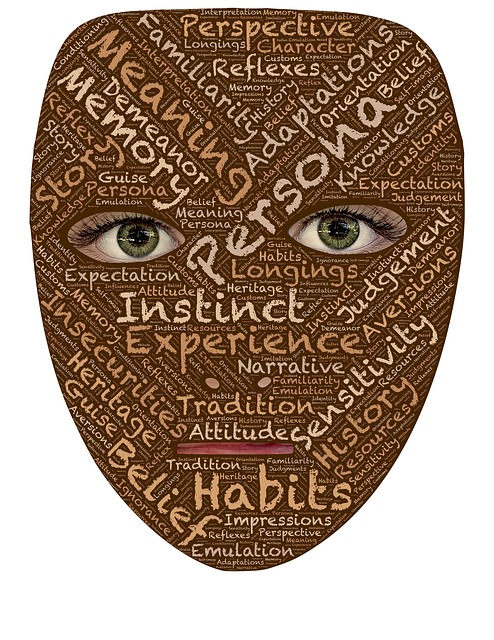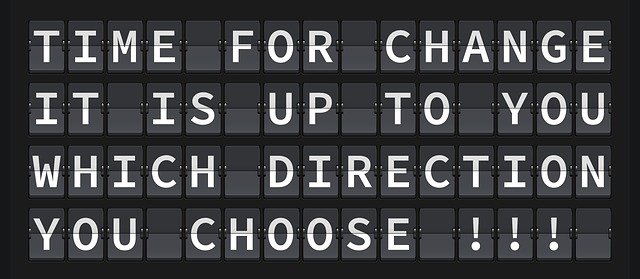In the previous post, I discussed the concept of absolutes advanced by Lance Allred. Absolutes are those firm, unshakeable beliefs we hold about our self, others or the world around us. They constrain our perspectives and influence our behaviour. They are relatively immoveable and do not dissolve in the face of rational argument. Absolutes shape our thoughts, feelings and reactions and impact our effectiveness and our relationships. They develop early in family life and are often reinforced culturally. The downside of absolutes is that they stop us from realising our full potential – they act like clots in our circulatory system, stemming the flow of creativity and responsiveness.
A reflection to surface and address an absolute
It seems to me that the starting point for addressing the absolutes in our life is to begin with developing self-awareness and move to identifying strategies to self-regulate our reactions. It is important to focus on one aspect of our present experience that we find unsatisfactory because of the negative thoughts and emotions that the experience elicits in us. We are complex beings, so beginning with one relatively small absolute can develop our self-awareness and improve our capacity to respond effectively without the baggage of our past.
There are several steps in the meditation:
- Being grounded: It is important to become grounded so that you can achieve a sense of focus, balance and insight. Being conscious of your posture and breathing helps to ground you in the present.
- Deciding on an anchor: Your anchor is designed to enable you to come back into the focus of your reflection whenever you become aware that you have become distracted or diverted in your thinking. The choice of anchors is a personal thing – I still like to feel the sensation of my fingers coming together.
- Focus on an unsatisfactory experience: Decide what you are going to work on to unearth an absolute that is negatively impacting your thoughts, feelings and behaviour. It could be some recent interaction or activity that made you upset or threw you off balance. It does not have to be a major issue – in fact, initially it is better to start small. [I have started with the fact that I get upset and annoyed when I make a mistake at social tennis.]
- Explore your emotions during the incident: What were you feeling? What was the intensity of those feelings? What was the catalyst for those feelings – what really happened? Who were your feelings directed at – yourself or another person? [In my case, with my tennis mistakes my feelings were annoyance, frustration, anger and shame.]
- What thoughts were behind your emotions: Why did you experience those emotions? What was the incident triggering in you? What belief (absolute) about your self or the other person was driving your emotional response? Whenever your thoughts include a “must” or “should”, you are beginning to access an absolute that is locking you into a response that reduces your flexibility and constrains your perspective. [When I get upset with my tennis mistakes, my underlying thought or absolute is that “I must be seen to be competent at tennis.”]
- Explore the nature of your identified “absolute”: Take a close look at your absolute. Is it a rational or realistic thought? What is its origin? Is it embedded in a childhood experience or something that happened in later life? Where did it come from and why is it persisting? What does it say about your sense of self-worth – is your sense of who you are dependent on what someone else thinks or says? [Tennis competence was a way to prove my worth – it generated respect and admiration. It made me feel good about myself. My identity is tied up with the self-perception that I am a very good tennis player.]
- What strategies could you adopt to reduce the impact of your “absolute”: The starting point is to acknowledge your absolute and how it is playing out in your life and relationships. What could you do to reduce or avoid your negative, conditioned response? Are there ways to build in a gap between the stimulus (the catalyst) and your response to give you the time and freedom to respond differently? Are there other offsetting, positive thoughts that you could entertain instead of your “absolute”? [For my issue with tennis mistakes, one strategy has been to progressively loosen the relationship between my sense of self-worth and the outcome of the game – that is, not measuring my sense of self- worth on whether I won or not. This still leaves the issue of being upset with my tennis mistakes. A strategy I am trying here is to express gratitude that I am able to play, that I can run and hit the ball, that I can hit some really good shots – that is, appreciating what I have and not focusing on the negatives and lack of accomplishment.]
Reflection
Even relatively minor “absolutes” are very hard to dislodge. Using a reflection like the one described above can help to chip away at an absolute and reduce its hold on us by eroding our sense of certainty about the underlying belief, by seeing it for what it really is (e.g. illogical, unfounded or unnecessary) and developing alternative ways of thinking and feeling. As we grow in mindfulness and self-awareness, we can develop deeper personal insight, identify how absolutes play out in our life and develop more creative and positive ways to respond to negatively experienced stimuli that will inevitably recur in our daily lives.
________________________________________
Image by John Hain from Pixabay
By Ron Passfield – Copyright (Creative Commons license, Attribution–Non Commercial–No Derivatives)
Disclosure: If you purchase a product through this site, I may earn a commission which will help to pay for the site, the associated Meetup group and the resources to support the blog.


